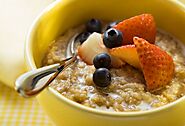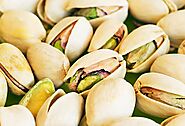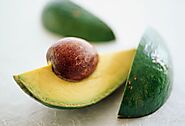-
About
- About Listly
- Community & Support
- Howto
- Chrome Extension
- Bookmarklet
- WordPress Plugin
- Listly Premium
- Privacy
- Terms
- DMCA Copyright
- © 2010-2025 Boomy Labs

Listly by Umbrella Health Care Systems
There are many ways to manage and even reduce stress levels when you’re feeling tense. Food can be one of your biggest allies — or enemies. It can make your stress levels go down or up, so it’s critical to pay attention to what you’re eating when you’re feeling frazzled. Not to mention, just being stressed can increase your need for certain nutrients, such as vitamin C, vitamin B, selenium, and magnesium, noted a review published in June 2016 in the Journal of Nutrition & Food Sciences.
An article published in August 2015 in the journal Stress suggested that the amount and quality of nutrients you take in over time can impact the body’s neural circuits that control emotion, motivation, and mood. Other research, such as a study published in October 2017 in the journal Psychosomatic Medicine: Journal of Behavioral Medicine, has pointed to gut microbiota — microorganisms in the intestine comprised of good and bad bacteria — as an essential link to the relationship between what you eat and drink, and how you feel.
“Microbiome health, or gut health, affects your mood, emotions, and psychological health,” says Alice Figueroa, RDN, MPH, a nutritionist in New York City and founder of Alice in Foodieland.
Fighting stress with food is a tactic available to everyone, Figueroa says. No expensive supplements or complex methodology is required.
Unhealthy eating patterns can send stress levels skyrocketing and potentially increase your risk of health problems in the future if you don’t address them. According to the June 2016 review in the Journal of Nutrition and Food Sciences, a well-balanced and nutritious diet was likely the single most important ingredient for good health. So the next time you’re under pressure, arm yourself with this delicious arsenal of 10 stress-busting pantry staples
https://www.umbrellamd.com/e-visit

Stress: We all have it, and how we handle it can make all the difference. Stress management can be a powerful tool for wellness, since too much stress is bad for you. There are many strategies, and one of them includes what you eat. Read on to learn how a stress management diet can help.
https://www.umbrellamd.com/e-visit

Foods can help tame stress in several ways. Comfort foods, like a bowl of warm oatmeal, boost levels of serotonin, a calming brain chemical. Other foods can cut levels of cortisol and adrenaline, stress hormones that take a toll on the body over time. A healthy diet can help counter the impact of stress by shoring up the immune system and lowering blood pressure. Do you know which foods are stress busters?
https://www.umbrellamd.com/e-visit

All carbs prompt the brain to make more serotonin. For a steady supply of this feel-good chemical, it's best to eat complex carbs, which take longer to digest. Good choices include whole-grain breads, pastas, and breakfast cereals, including old-fashioned oatmeal. Complex carbs can also help you feel balanced by stabilizing blood sugar levels.
https://www.umbrellamd.com/e-visit

Dietitians usually recommend steering clear of simple carbs, which include sweets and soda. But in a pinch, these foods can hit the spot. They're digested quickly, leading to a spike in serotonin. Still, it doesn't last long, and simple carbs can also spike blood sugar, There are better options. So don't make these a stress-relieving habit; you should limit them.
https://www.umbrellamd.com/e-visit

Oranges make the list for their wealth of vitamin C. Studies suggest this vitamin can curb levels of stress hormones while strengthening the immune system. In one study of people with high blood pressure, blood pressure and levels of cortisol (a stress hormone) returned to normal more quickly when people took vitamin C before a stressful task.
https://www.umbrellamd.com/e-visit

Too little magnesium may trigger headaches and fatigue, compounding the effects of stress. One cup of spinach helps you stock back up on magnesium. Don't like spinach? Other green, leafy vegetables are good magnesium sources. Or try some cooked soybeans or a fillet of salmon, also high in magnesium.
https://www.umbrellamd.com/e-visit

To keep stress in check, make friends with naturally fatty fish. Omega-3 fatty acids, found in fish such as salmon and tuna, can prevent surges in stress hormones and may help protect against heart disease, depression, and premenstrual syndrome (PMS). For a healthysupply of feel-good omega-3s, aim to eat at least 3.5 ounces of fatty fish at least twice a week.
https://www.umbrellamd.com/e-visit

Drinking black tea may help you recover from stressful events more quickly. One study compared people who drank 4 cups of tea daily for 6 weeks with people who drank another beverage. The tea drinkers reported feeling calmer and had lower levels of the stress hormone cortisol after stressful situations.
https://www.umbrellamd.com/e-visit

Pistachios, as well as other nuts and seeds, are good sources of healthy fats. Eating a handful of pistachios, walnuts, or almonds every day may help lower your cholesterol, ease inflammation in your heart's arteries, make diabetes less likely, and protect you against the effects of stress. Don't overdo it, though: Nuts are rich in calories.
https://www.umbrellamd.com/e-visit

One of the best ways to reduce high blood pressure is to get enough potassium, and half an avocado has more potassium than a medium-sized banana. A little bit of guacamole, made from avocado, might be a good choice when stress has you craving a high-fat treat. Avocados are high in fat and calories, though, so watch your portion size.
https://www.umbrellamd.com/e-visit

Umbrella Health Care Systems provide complete solution for health related problems.
https://www.umbrellamd.com/